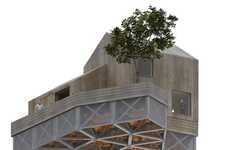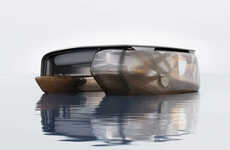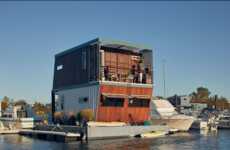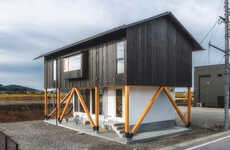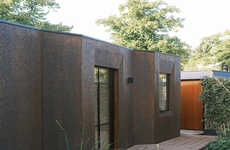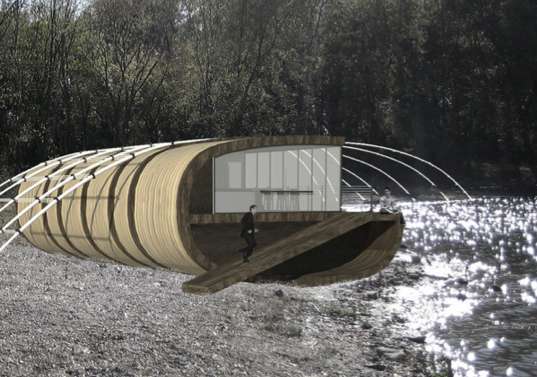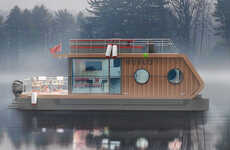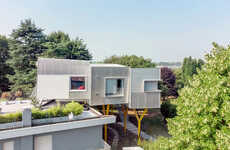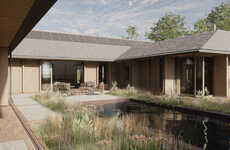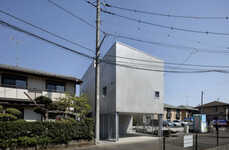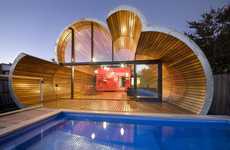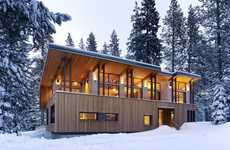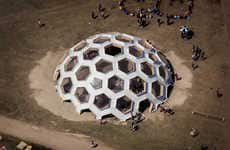
Floating House by Brad Wanek Hangs Flood and Tide-Resistant
Amelia Roblin — May 12, 2011 — Eco
References: behance.net & designbuzz
Dwellings with a lake or ocean view will always be in demand, and this Floating House by Brad Wanek suggests a safe way to live by the seashore.
Climate change has been spurring extreme weather conditions, and one's fear of flooding, larger waves and gradual rising water levels makes this little abode an attractive retreat.
The H2O Architecture project is fundamentally a single-storey bungalow with an empty underbelly resembling the hull of a boat. The long, rounded structure is suspended by supports not unlike expansive fishing rods that arch over and towards the water. On command, the whole home can be lifted up along the curved poles and away from the sea swell. The Floating House by Brad Wanek can even turn to face its windowed wall in a different direction, should the threat of high winds blow across.
Climate change has been spurring extreme weather conditions, and one's fear of flooding, larger waves and gradual rising water levels makes this little abode an attractive retreat.
The H2O Architecture project is fundamentally a single-storey bungalow with an empty underbelly resembling the hull of a boat. The long, rounded structure is suspended by supports not unlike expansive fishing rods that arch over and towards the water. On command, the whole home can be lifted up along the curved poles and away from the sea swell. The Floating House by Brad Wanek can even turn to face its windowed wall in a different direction, should the threat of high winds blow across.
Trend Themes
1. Climate-change Adaptation Architecture - The need for flood and tide-resistant structures due to extreme weather conditions provides opportunity for architects to innovate in climate-change adaptation.
2. Floating Homes - The concept of a movable home that can be lifted away from the sea swell can attract homeowners looking for a safe and flexible seaside retreat.
3. Smart Seaside Housing - With the capacity to turn and face the windowed wall in a different direction in the event of high winds, there is an opportunity to create smart seaside housing that utilizes technology to enhance occupant experience and safety.
Industry Implications
1. Architecture - Architecture firms can cater to the demand for climate-change adaptation architecture and redefine residencies for increased safety in extreme weather conditions.
2. Real Estate - Developers can invest in the construction and marketing of floating homes for customers looking for waterfront property with increased safety precautions.
3. Smart Home Technology - Tech companies can develop smart home technology to enhance the occupant experience and safety of seaside housing.
4.9
Score
Popularity
Activity
Freshness


